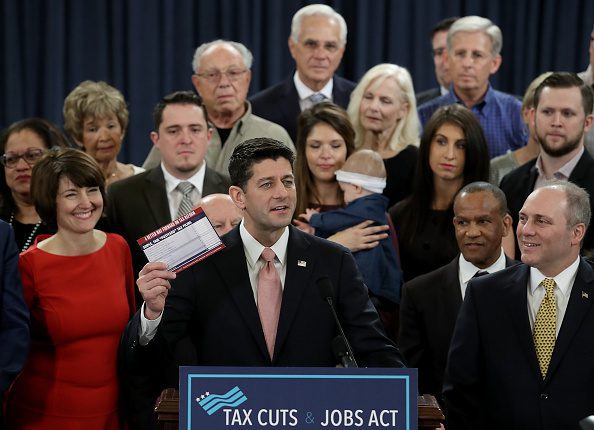
A much-anticipated tax code overhaul has been released by House Republicans, and it would cut the corporate tax rate from 35% to 20% as lawmakers promised in September.
The Tax Cuts and Jobs Act would make that 20% corporate tax rate permanent and instate it immediately upon the bill becoming law, as opposed to phasing it in over a period of years as was being discussed by lawmakers in recent weeks. The bill would also create a new global 10% tax on high-profit foreign subsidiaries of U.S.-based companies, to prevent those organizations from stowing profits away overseas.
The proposed tax bill would create a new 25% tax rate for pass-through businesses, as opposed to being taxed an individual rate as they are currently.
The draft includes a higher individual rate for the nation’s wealthiest taxpayers than was originally proposed in September, with a 39.6% rate to reportedly apply to married couples making over $1 million annually. Three new individual tax brackets are also included in the plan: A 12% rate on incomes up to $45,000 for an individual and $90,000 for a married couple, a 25% rate on incomes up to $200,000 for and individual and $260,000 for couples, and a 35% rate on incomes up to $500,000 for an individual and $1 million for couples.
Here’s a roundup of initial reactions to the plan released this morning:
- The bill’s author, House Ways and Means Committee chairman Kevin Brady says that “today marks the beginning of the end of America’s broken tax code.”
- The bill will mean different things for different businesses (and individuals), if it is passed in its current form.
- 401(k) plans will not be impacted by the new tax plan, as had been rumored in recent weeks.
- GOP Senator Marco Rubio of Florida has already come out and said that the plan doesn’t do enough to help working families, indicating there is still work to be done before the law passes.
- Those who are interested can take a deep dive into the 429-page proposal at the U.S. House Ways and Means Committee’s website.
- The National Federation of Independent Businesses and The National Association of Realtors are among the business organizations speaking out against the proposal.







